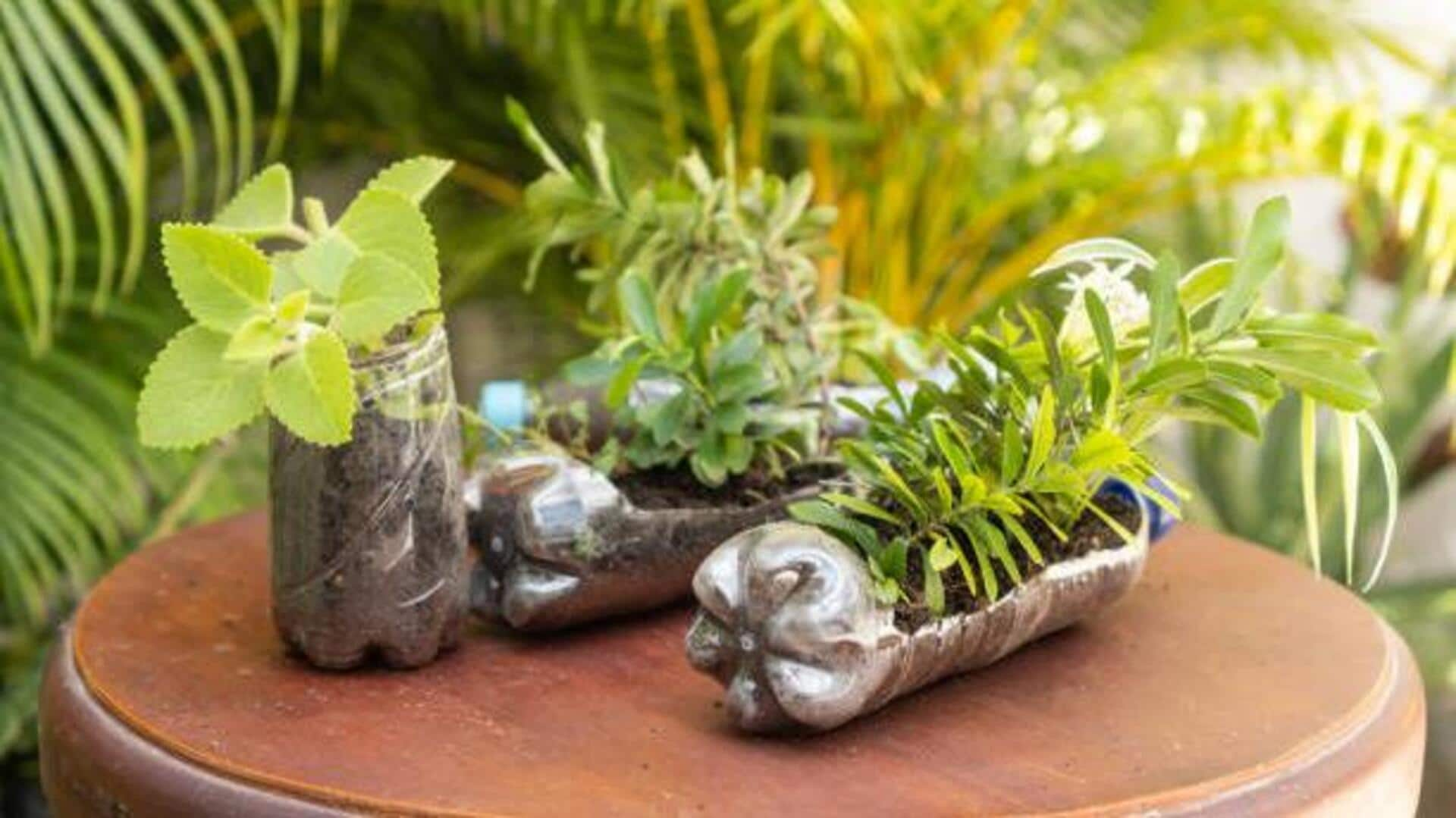By Simran Jeet | Sep 30, 2025 | 10:44 am
**Indoor Gardening with Eco-Friendly Pots: Sustainable Ideas for Your Green Space**
Indoor gardening is a wonderful way to bring a touch of nature inside your home. When paired with eco-friendly pots, it becomes an even more rewarding and sustainable hobby. Using pots made from sustainable materials not only adds aesthetic value but also helps protect our environment.
Growing plants in eco-friendly pots allows you to minimize waste and reduce pollution while creating your indoor green sanctuary. Here are some innovative ideas to help you make your indoor garden more sustainable.
### Tip 1: Recycled Plastic Bottle Planters
Recycling plastic bottles into planters is an easy and cost-effective way to reduce waste. Simply cut a plastic bottle in half, use the bottom portion as a planter, and hang it on walls or place it on shelves.
This method keeps plastic out of landfills and provides a handy container for small plants or herbs. Plus, it’s a fun DIY project that lets you add a personal touch to your indoor garden.
### Tip 2: Bamboo Fiber Pots
Bamboo fiber pots are crafted from natural bamboo pulp, making them biodegradable and sustainable. These pots are both sturdy and lightweight, perfect for indoor use.
Additionally, bamboo fiber pots offer excellent drainage, preventing overwatering and supporting healthy plant growth. By choosing bamboo pots, gardeners embrace renewable resources and contribute to environmental conservation.
### Tip 3: Coconut Coir Hanging Baskets
Made from the fibrous husks of coconuts—usually discarded as waste—coconut coir hanging baskets are an eco-friendly option for indoor gardening.
Ideal for hanging plants like ferns or ivy, these baskets are naturally breathable, which promotes healthy root growth. Being biodegradable, coconut coir baskets break down over time without causing environmental harm.
### Tip 4: Terracotta Clay Pots with Saucers
Terracotta clay pots are a classic, eco-friendly choice for indoor gardening thanks to their natural, porous material. Their porous nature allows air and moisture to circulate through the soil, encouraging robust plant health.
When paired with saucers made from recycled materials, these pots also help catch excess water, keeping your surfaces clean and tidy.
### Tip 5: Upcycled Tin Can Planters
Upcycling tin cans into planters is a clever and economical way to repurpose materials that might otherwise be thrown away.
To create your own, clean out a tin can, punch drainage holes in the bottom, then paint or decorate it as you like before planting your favorite flowers or herbs. This creative approach cuts down on waste and brings unique character to your indoor garden.
—
By integrating these eco-friendly pot ideas, you can nurture your indoor plants while making a positive impact on the environment. Happy gardening!
https://www.newsbytesapp.com/news/lifestyle/indoor-gardening-5-eco-friendly-pot-ideas/story
